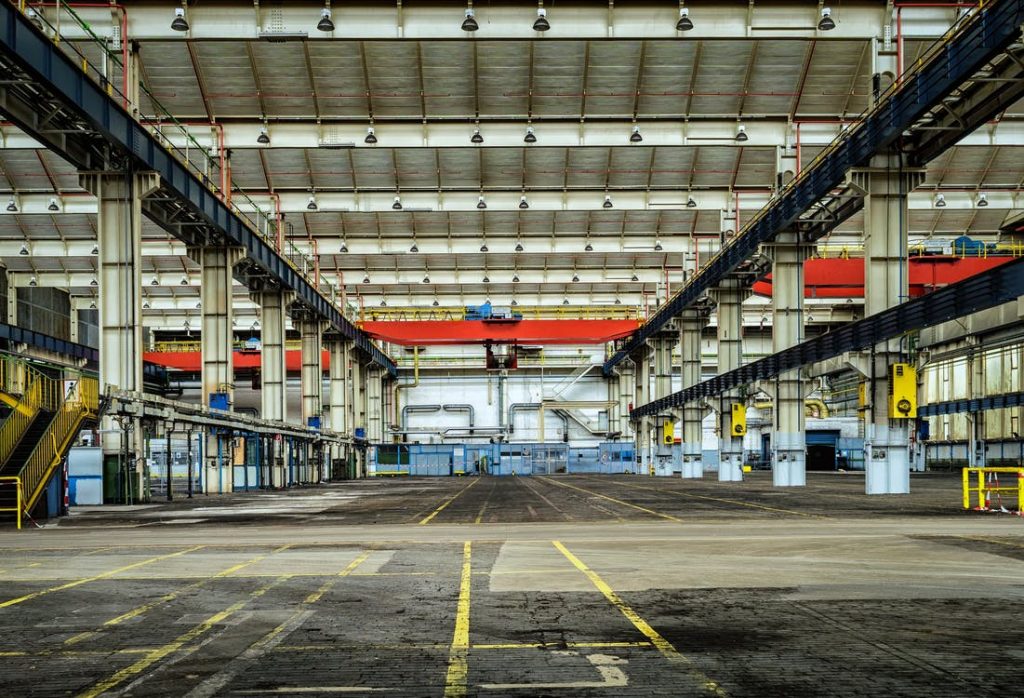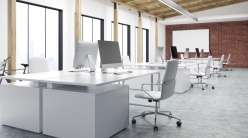It goes without saying that warehouses can be hazardous places of work. There can be dangerous machinery, heavy stock, tall shelving etc. It is therefore important to maintain a strict health and safety regime for your employees, and also to uphold your insurance policies. If accidents happen and it becomes apparent that these procedures were not in place, it’s likely your insurance will be deemed invalid.
While it’s inevitable that accidents may happen, they can usually be avoided. This article will give you some basic tips to minimise accidents and ensure that if that do happen, your insurance will pay out…

Heavy Duty Equipment
Everyone that uses heavy duty equipment should be fully trained otherwise you could be liable for damage or causing an accident. Training should be provided, completed, and then maintained with annual refreshers.
The biggest causes of accidents with machinery are; complacency, taking risks, or damaged parts. The latter should also be taken care of by the company. Regular servicing should be carried out by a specialist, just like you would with a car. For example, if you have a forklift, you should make sure parts such as a new chains, rollers, forklift batteries, or filters.
Avoiding Slips or Trips
Slips are a very easy hazard to avoid. You should have warning signs easily accessible for when the weather is wet or when there has been a spillage. Your employees should be trained in how to deal with a situation. For example if it is a chemical spillage, you may need to use gloves and cover the spillage in sawdust.
For trips, you should ensure that the warehouse is well lit in all areas, with lighting fixed and bulbs changed as quickly as possible. Any steps or slopes should have warning signs or a fitted handrail to help employees avoid losing balance.
Boxes and stock need to organised. Anything that is blocking a footway can be easily tripped over and cause harm to your employer.
Risk of Falling
Working in a warehouse often means working at heights, from shelving to the back of a lorry. Much like working with machinery, training and maintenance of equipment is key to minimising accidents. A fall is the most common warehouse accident to result in death. They are often caused by negligence, whether the employee was using an old ladder, or they didn’t have anyone holding the ladder, or they hit objects on the fall.
When on a lorry, safety platforms and procedures should be used everytime. Lorry drivers and warehouse workers have been on the wrong side of an accident while falling off the back of a lorry, usually when carrying something.
Fire Safety
A fire can not only be dangerous for your stock, but also for your employees. To prevent the risk of a fire, designate a smoking area well away from the factory floor, and keep flammable materials well away from machinery. Loose wires should be kept in cables, and cables should be tidy, and covered if in a footpath.
If there is a fire, it is important that fire exits are clearly marked out and that the route isn’t blocked by anything. You will be bound by law to test the fire alarms weekly, but by having a fire safety specialist conduct tests, you can be sure that your staff are aware of the procedures. Your company should also have fire marshals who are trained for using fire extinguishers.
Avoiding Harmful Substances
Some substances can be toxic and should be given extra attention when used. Inspectors will expect safety procedures for storing and using substances such as; chemical cleaning materials, alkaline traction battery, gas, and oil.
Handling Heavy Loads
It is essential that employees are given the correct equipment to manage lifting heavy loads. This can include a forklift, a trolley, or a barrow. Employees should also be encouraged to request help if the load is too much for one person to carry. Routes need to be kept clear and checked before carrying any heavy loads.
It is best practice to keep heavier stock on the bottom shelves to minimise risk to your employees, and avoid damage to the shelving.





